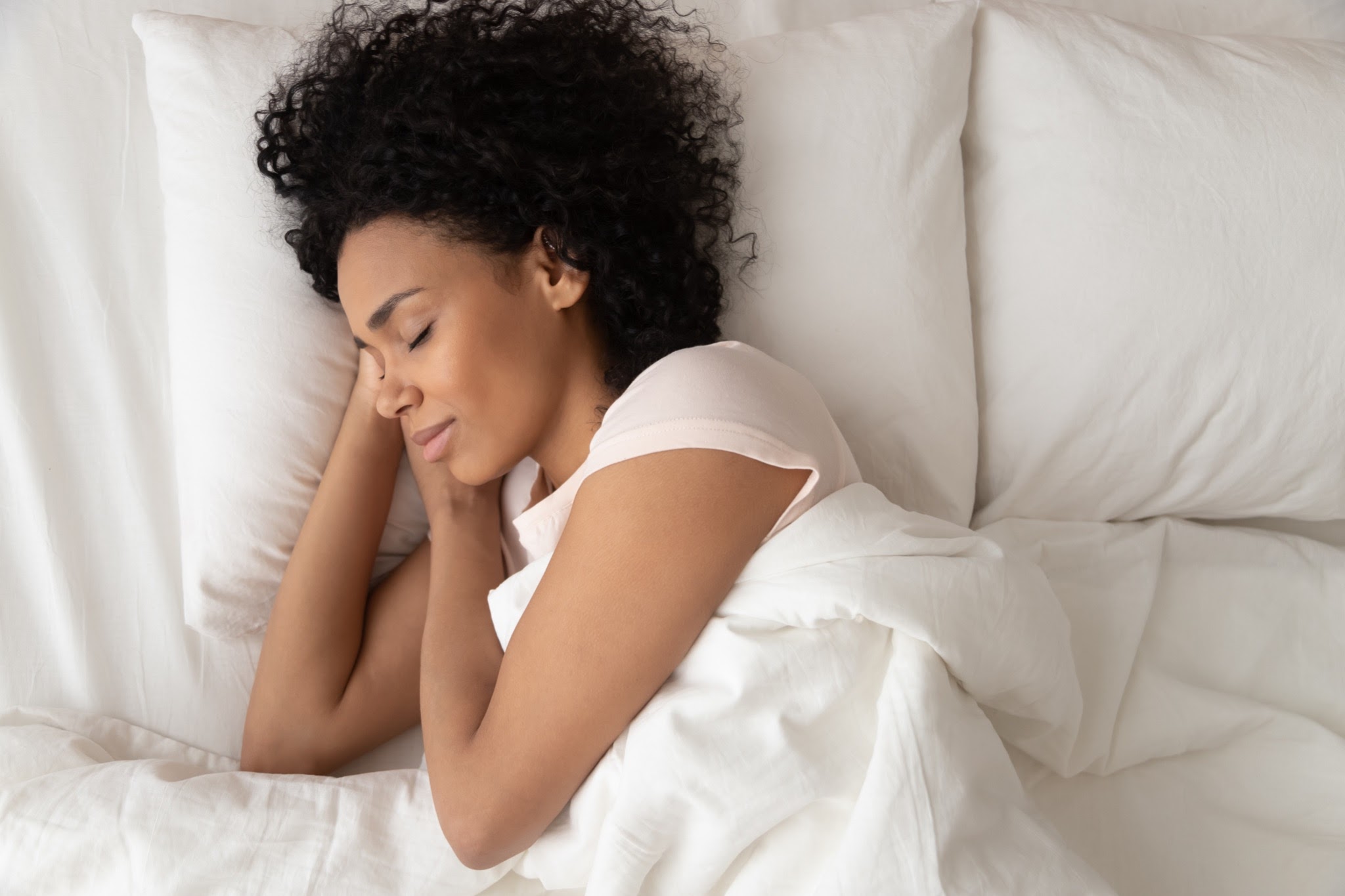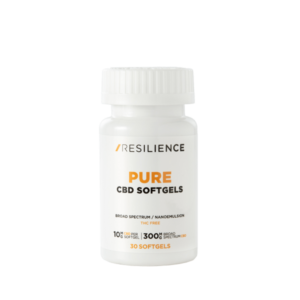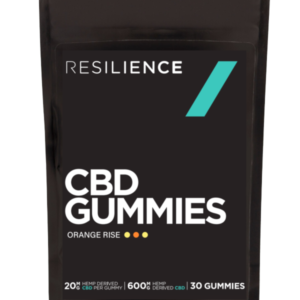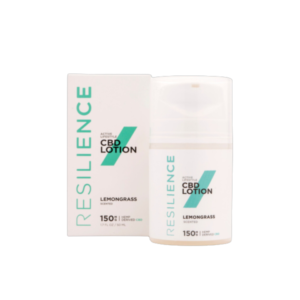
Even the most resilient go-getters need to make time for adequate rest. But, sometimes, falling asleep at night can feel like more of a challenge than a fast-paced track workout or a come-from-behind victory.
That’s why people are looking to CBD not only to help them relax after a tough day but also to encourage a more restful sleep over time.
Our playbook on all things CBD will give you everything you need to know about what CBD is, how you can incorporate it into your bedtime routine, and why restorative sleep could be the key to keeping you active and strong in the long run.
Incorporating CBD Into Your Sleep Habits
CBD, short for cannabidiol, is a chemical component extracted from the hemp plant that may be an attractive option for those in search of sleep support. This non-psychoactive cannabinoid could help to ease stress and worry, making bedtime more relaxing and less of a battle against intrusive thoughts that lead to further sleep problems.
How you incorporate CBD into your nighttime routine, however, depends a bit on which form you choose to consume. As such, we’ve compiled a list of some of the most common types of CBD products you can find on the market today to boost your nighttime routine:
- Capsules – Like many over-the-counter medications, CBD can come in gel capsules that are easily swallowed with a glass of water. CBD softgels and capsules offer reliable dosing and provide slower-acting effects that may support a full night of restful sleep.
- Gummies – CBD can also be ingested via gummy candies. Chewy and sweet, these CBD gummy treats can come in a variety of different colors, shapes, and flavors.
- Tinctures – Highly concentrated tinctures are another way of consuming CBD at bedtime. You’ll want to follow the instructions on the label, but it can often be administered by adding a few drops of CBD tincture to a beverage, snack, or directly underneath your tongue.
- Bath bombs – In need of a CBD spa day to rest your muscles after a long day at the gym? Drop a CBD bath bomb the next time you draw yourself a bath to alleviate sore muscles and relax both your body and mind.
- Cream – CBD-infused topical creams are another way of soaking up its many benefits. Apply a small dollop of one of our CBD topicals to specific areas of your body to help soothe sore joints and muscles. As an athlete, you know the feeling of sore muscles after a long day of training. Using a therapeutic CBD sports cream may help soothe muscle tension so you can get back to crushing even your toughest workouts.
Ultimately, how you choose to consume CBD may depend on personal preference. Follow along below for more specific information regarding the best ways to take CBD for sleep.
What is the Best Way to Take CBD For Sleep?
The effectiveness of CBD may vary depending on the type of CBD product you use before bedtime:
- Gummies and capsules – For those opting to take a CBD gummy or CBD capsule, consider taking them as directed about an hour or two before your bedtime. Since they’ll need to pass through your digestive system first, more time may be needed before being able to experience their full effects.
- Tinctures – Tinctures, on the other hand, tend to have a more immediate effect on your body. In this case, certified sleep coach Ryan Fiorenzi suggests the best time to take a CBD tincture for sleep is around 20 minutes before you plan to retire for the night.
What Should You Do After Taking CBD For Sleep?
Once you’ve chosen your sleep-time companion, you can start to enjoy a restful night of slumber. But don’t let your journey to better sleep end there—be sure to monitor the effects CBD appears to have on your body at night and make note of any long-term effects that occur over time.
To that end, consider keeping a sleep journal in which you document:
- Your nightly duration of sleep before and after using CBD.
- How much uninterrupted sleep you may be getting as a result of CBD. Do you wake up frequently or are you able to sleep through the whole night? How is this different from before you started using CBD, if at all?
- How long it takes you to fall asleep once your head hits the pillow. Do you find yourself tossing and turning or do you doze right off?
- How rested you feel in the mornings. Do you wake up feeling groggy or energized and well-rested?
- If you’re experimenting with different methods of consumption, you may be wondering when the best time to take CBD for sleep is. Do you prefer to take a CBD tincture 20 minutes before your head hits the pillow? Or does it take longer to take effect?
Keep a log of this information during the first few weeks of use and use it to make adjustments to your routine as needed. And remember, CBD is only part of the equation when it comes to focusing on sleep support. Stay tuned for a few tips that will help you round out your routine.
Tips and Tricks For Good Sleep Hygiene
You’ve likely heard of dental and personal hygiene and, chances are, you practice them pretty regularly. If it isn’t already, sleep hygiene should also be on your radar when it comes to taking care of your physical health.
While CBD may be able to clear the obstacles along the pathway to dreamland, there are a few more bases to cover to make the most of your slumber. Here are a few sleep hygiene best practices as recommended by the American Academy of Sleep Medicine (AASM):
- Get enough hours of sleep – Aim to get between seven and eight hours of sleep each night and keep a consistent sleep schedule in which you go to bed and wake up around the same time every day.
- Avoid blue light – Try to avoid bright light from things such as tablets, mobile devices, or television in the evenings and at least 30 minutes before going to bed.
- Exercise regularly – Take time to maintain a regular exercise routine, eat a healthy, well-balanced diet, and be sure to avoid drinking caffeine in the late afternoon and evening.
- Create a relaxing environment – Make sure your bedroom is an environment that’s conducive to proper sleep by keeping it at a comfortable temperature, using a supportive mattress, and limiting exposure to loud, disruptive noises.
- Eat healthily – Avoid eating heavily or drinking alcohol in large quantities before bedtime.
- Relax your mind – Test out a few different relaxation methods before bed to find what works best for you. Whether it’s reading a book quietly, working on a new breathing technique, or practicing yoga, choose a quiet activity that puts you in the right mindset for a good night’s sleep.
Just as brushing and flossing can prevent issues such as gum disease and cavities, practicing proper sleep hygiene also comes with its fair share of benefits. Read on for more information regarding the advantages of getting high-quality sleep.
Health Benefits of High-Quality Sleep
Waking up in the morning feeling well-rested and ready to take on the day is certainly a perk, but there are plenty of other ways that a good night’s sleep can benefit both your body and mind.
Sleep expert Dr. Michael Twery explains that sleep “affects growth and stress hormones, our immune system, appetite, breathing, blood pressure, and cardiovascular health.” So, by sticking to a relaxing bedtime routine and prioritizing sleep time over screen time, you’re taking a few steps closer to physical and mental wellness. Here’s a closer look at a few of the benefits of high-quality sleep per Dr. Twery:
- Cardiovascular health – Just as heart-pumping exercise contributes to positive cardiovascular health, so does a good night’s sleep. The fluctuation of heart rate and blood pressure that occurs as we sleep is a heart health-promoting activity that starts when our heads hit the pillow.
- Healthy weight – Eating a well-balanced diet is a good place to start when it comes to maintaining a healthy weight, but so is a proper night’s sleep. Cell repair and hormone changes that happen overnight could play a positive role in keeping your body at its appropriate weight.
- Immune system support – If you find yourself often bogged down with the sniffles, sleep could be one way of preventing colds before they start. Making sure your body is getting the rest it needs could play a factor in strengthening both your innate and adaptive immune systems.
- Mental health – Beyond the physical benefits, getting proper sleep may also lead to positive mental health changes. According to Sleep Foundation, reaching deep REM sleep enables our brains to process emotional information, which ultimately impacts our mood when we wake up each day.
Ease Relaxation and Sleep With Resilience CBD
If you’re aiming to take back control of your sleep schedule, consider looking to CBD as a tool that can help get you to where you want to be. Start by outlining your sleep goals, and then work towards establishing a routine that works for you.
The pathway to a more resilient, well-rested you starts by taking care of your body, honoring your sleep schedule, and channeling CBD levels of calm. Whether you prefer gummies, oils, bath bombs, or a bundle of everything, you can count on Resilience CBD to bring you the highest quality products made from hemp that’s been organically grown right here in the USA. Read our guide, “CBD vs Melatonin: Which is Best for Sleep?” to learn more about how you can achieve a more restful sleep.
Eager to feel restored and ready to take on your goals with gust? Find your CBD sleep solution today.
 Michael Tatz | Linkedin
Michael Tatz | Linkedin
Michael Tatz is the Co-Founder of Resilience CBD, and a passionate leader in the health & fitness world helping others rise to and crush their wildest goals. A former Division 1 college wrestler, Army Officer, and investment manager at Goldman Sachs, he has pushed his body and mind to the limits on the mats, dressed in camo, and in the boardroom.
Today, he spends his time leading Resilience CBD to develop the absolute best recovery products for athletes everywhere. Resilience was founded after CBD personally impacted Michael’s life, and the brand was built to partner with everyday athletes in pursuit of conquering their most difficult challenges, rebounding after their toughest performances, and rising to their goals that once seemed impossible.
Sources:
American Academy of Sleep Medicine. Healthy Sleep Habits. https://sleepeducation.org/healthy-sleep/healthy-sleep-habits/
National Institutes of Health. The Benefits of Slumber. https://newsinhealth.nih.gov/2013/04/benefits-slumber
Start Sleeping. CBD Dosage Guide: How Much Should You Take?https://startsleeping.org/cbd-dosage/#dosage
Sleep Foundation. How Sleep Affects Immunity. https://www.sleepfoundation.org/physical-health/how-sleep-affects-immunity
Sleep Foundation. Mental Health and Sleep. https://www.sleepfoundation.org/mental-health







